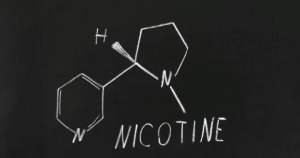Studies show that 60-75% of people in North America will experience a traumatic event at some point in their lives. Physical trauma is an injury caused by an external force. Likewise, invisible psychological trauma is a mental injury caused by an external agent.
Trauma is the emotional response to a stressful or disturbing event. These events can include the loss of a loved one, an automobile accident, an assault, war, or even a natural disaster. Traumatic events can make the victims feel trapped in the emotional impact of the event.
There are three main types of trauma, and all of them vary in cause and treatment, but not in prognosis. Despite the severe impact trauma can have on daily living, there is still hope for every victim of trauma.
In this article, we’ll be discussing the various types of trauma and treatment, so read on to learn more.
What Is Trauma?
Trauma is a natural response to any terrible event like an accident, sexual assault, or act of violence. There is no set cause for trauma, trauma can occur after any event that the victim finds emotionally or physically threatening.
Not everyone who has a traumatic experience develops trauma, and no two instances of trauma response are the same. Some cases and symptoms are long-term while others are short-term and resolve on their own.
Children are especially vulnerable to trauma. This is because their brains are still developing, so they experience a heightened state of stress. Childhood trauma can lead to a pervasive sense of fear and hopelessness that can follow them into adulthood.
Mental Health Center of San Diego
Symptoms of Trauma
Psychological symptoms of trauma response include:
- Guilt
- Anger
- Fear
- Shame
- Hopelessness
- Emotional outbursts
- Irritability
- Flashbacks
- Nightmares
Essentially, victims feel they are reliving their experiences in their head and constantly on guard against other potential trauma.
Trauma causes the body to be in a perpetual state of hyperarousal. This can make it very difficult to sleep and makes the victim jumpy.
Physical symptoms include:
- Headaches
- Digestive symptoms
- Racing heart
- Alertness
- Insomnia
Avoidance is also quite common, as someone suffering from trauma will want to avoid potential triggers at all costs.
There are substances commonly used to induce sleep and relaxation. However, these can lead to addiction. Trauma is therefore often comorbid with substance abuse, depression, and anxiety. Studies show that childhood trauma, and substance abuse are intricately linked.
What Are the 3 Types of Trauma?
Depending on the frequency and duration of the traumatic events, trauma can be divided into three types. The different types of trauma have similar symptoms, but different durations and severities.
Acute Trauma
Acute trauma results from a single event such as an automobile accident, a sexual assault, or a natural disaster. Usually, the event is extreme and life-threatening. Mental trauma is short-lived and treatment is generally short-term counseling to return to feeling safe.
Chronic Trauma
Chronic trauma occurs from exposure to multiple types of physical trauma. It could also result from one long-term event. Some potential causes of chronic trauma include sexual abuse, domestic violence, war, and bullying.
With chronic trauma, the victims often have trust issues. Without trust, they lack the ability to form stable relationships. This makes chronic trauma more clinically disruptive than acute trauma. Chronic trauma often requires a longer duration of treatment.
Mental Health Center of San Diego
Complex Trauma
Complex trauma is the result of exposure to many varied types of emotional trauma. These experiences are usually within the context of interpersonal relationships. This results in the victim feeling trapped in a cycle of trauma.
Complex trauma can be caused by childhood abuse, neglect, domestic violence, turbulent family situations, and civil unrest. Complex trauma impacts health, relationships, and job performance. It generally requires long-term treatment and therapy.
You can learn more about how trauma and PTSD affect relationships in this article.
Treatment
Medication can only manage some of the symptoms. It cannot cure trauma or PTSD. Clinical therapy is the best trauma treatment, particularly when conducted with a trauma-focused therapy program.
Cognitive-Behavioral Therapy
Cognitive-behavioral therapy (CBT) is regarded as the gold standard treatment for trauma. CBT helps people change their intrinsic thought patterns.
CBT promotes healthy emotional processing by shifting emotional responses. Someone exposed to trauma might have a natural inclination to view the world as scary and dangerous. CBT aims to rid the patient of the notion that, “the world is painful” and open them up to new responses.
By learning to manage triggers and stresses, the patient can change their perception of the world. This allows them to function more effectively within it.
EMDR
Eye movement desensitization and reprocessing (EMDR) is another therapy method. In EMDR, the patient briefly relives their traumatic experiences. The therapist guides the process and directs the patient’s eye movements.
EMDR allows the patient to process and re-integrate their traumatic events. Randomized trials confirm that EMDR is a very effective treatment for PTSD and trauma.
Somatic Therapy
Sometimes therapists will also use somatic therapies. The patient will relive the traumatic memories, while the therapist uses body-based techniques to break the body out of the fight, flight, or freeze response.
Mental Health Center of San Diego
Get Help Today
Trauma can force victims to get stuck in a cycle of fear and isolation. Anxiety and depression become the cornerstones of daily living. But, it doesn’t have to be that way. Seeking psychological help can relieve these symptoms, and improve quality of life.
At the Mental Health Center of San Diego, we offer high-quality counseling and evidence-based treatment for all types of trauma, comorbid substance abuse, and other mental health issues.
If you or a loved one has experienced trauma, reach out to us to learn more about our therapy programs.









